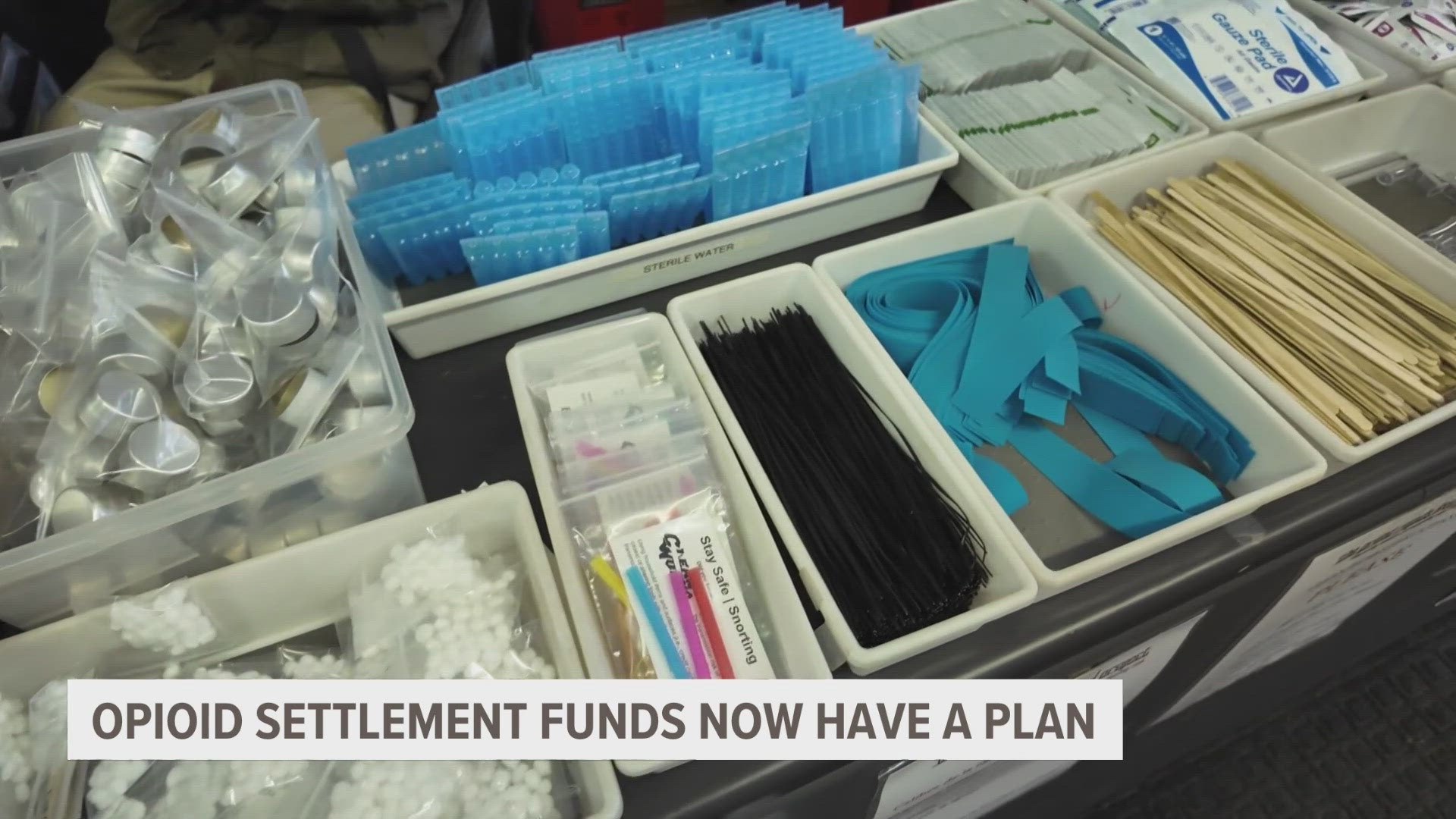GRAND RAPIDS, Mich. — The controversial budget and plan to fund opioid treatment opportunities in Kent County has come to a close, for now.
The delay in a decision comes after a 100-person task force has yet to come to an agreement on how to spend the money.
One of those people is Jonathan Stoltman, Director of the opioid policy institute and a volunteer on the Kent County Opioid Task Force.
And while he weighed in on some of the decision-making, Stoltman said he was against the passing of the final budget Thursday morning.
"I think the biggest thing was just the next two years of funding and our ability to really serve and help the most vulnerable people in Grand Rapids," said Stoltman. "It seemed like their voices were not included in that process, and that remains really concerning for me and a number of other people in our community."
Through 2038, Kent County will allocate almost over $19 million towards Opioid treatment and harm reduction.
Here's a breakdown of how some of that money will be spent over the next two years:
- $800,000 will be spent for jail-based treatment programs
- $60,000 for distribution of naloxone, or Narcan, to reverse overdoses
- and $20,000 for tools like fentanyl test strips.
What the funding does not cover, however, is other harm-reduction tools, like syringes that will help stop the spread of diseases. Something Stolton said organizations around the county could have used.
"The fact that for these first two years they didn't give any money to needles or syringe service programs is in itself a really big reflection of the priorities and very detached from what people are saying should be a priority."
However, Jenny James from the County's administration office said, Thursday afternoon, there are other funding streams for things like syringes and needles.
"Currently, the state of Michigan and the City of Grand Rapids have invested in that particular service through the red project so we did not include that in this plan since those two funding services were supported," said James.
In a statement, Rachel Jantz, Epidemiologist and Co-Chair of the Kent County Opioid Task Force explains the decision making for each category by saying in part quote:
"The decisions on how to spend the settlement funds were carefully considered with an eye toward increasing investments in evidence-based programs with past success and beginning to invest in new strategies."

